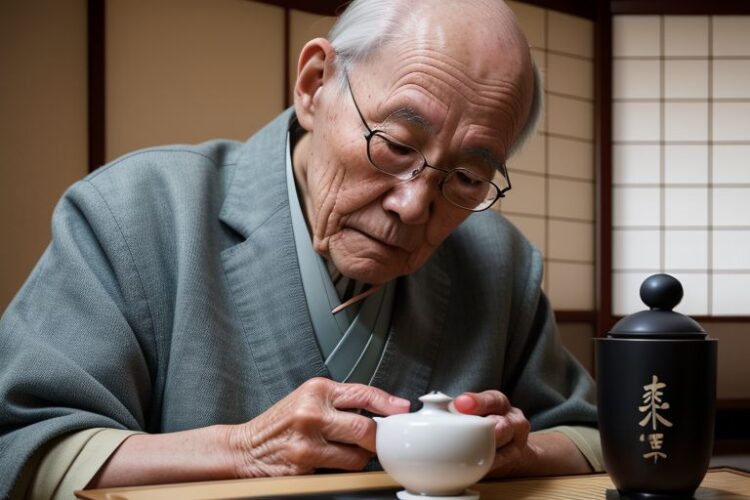Introduction
Japan is a land of rich culture, breathtaking natural scenery, and warm hospitality, increasingly in the minds of retiring people who hope to spend their later years in activity and serenity. It is the unique blend of tradition and modernity that gives Japan a captivating yet comfortable way of life.
Retirement in Japan is more than a dream; it is a practical reality for many. We will give you this complete guide so that you may be equipped with basic information to deal with the intricacies of making Japan your retirement home. We will take you on a journey from understanding the cost of living and finding your ideal home to navigating visa requirements and exploring the best places to live in.
Whether it is the busy vibe of Tokyo, Kyoto’s cultural assets, or the serenity found in Okinawa, Japan offers just about everything the retiree might want. Let us begin this journey together to find out the practicalities needed to make a Japanese retirement dream a reality.
The Allure of Retirement in Japan
Japan, what a harmonious mix of ancient traditions and modern marvels—there is no denying its lure for retirees who want to enjoy a full, peaceful chapter in their lives. More than the stereotypes that Japan is a country of technology and crowded cities, it offers a different lifestyle that emphasizes well-being, respect for nature, and strong community bonds.
Probably one of the most interesting aspects of Japanese culture is their concept called “ikigai,” literally translated to mean “reason for being.”
The philosophy emphasizes finding purpose and meaning in life; even retirement would have some activity giving it a reason to be. Much of the time in Japan is really used up on fulfilling activities that are post-retirement, usually through volunteer projects, hobbies, or nature.
This gives the retirees peace of mind and a good quality of life because safety and cleanliness are cornerstones of Japanese society. It is evident in the pristine public spaces, efficiency of transport systems, and overall secure and comfortable environment that Japan provides. Health and wellness are given great importance by Japan, and this shows in the low crimes, sumptuous nutritious foods available, and access to health care.
Although the natural appeal has to be the rich culture of Japan, it is also worth considering the way of living in such a country. We will discuss more about the costs, different housing options, and other visa requirements that are going to help you decide if Japan is the retirement haven you have been eyeing.
Cost of Living in Japan
The real cost of living in Japan is a factor to consider if one is considering retirement in that country. Though often thought to be very expensive, Japan does have a range of living styles from the very inexpensive to the very costly.
Average Cost of Living
Japan has vast differences in cost depending on where one might choose to reside. Large cities such as Tokyo and Osaka are very expensive; however, small towns and the countryside are relatively inexpensive.
Housing: This is usually the biggest expense. An apartment rental is the most affordable option, and buying is hard in big cities.
Food: While fresh produce and seafood are usually of high quality, in general, food prices differ little from most Western countries.
Transportation: Japan has an excellent public transport system; therefore, in most cases, a car won’t be necessary. Train, bus, and subway fares are within reason.
Healthcare: Japan offers universal healthcare for its citizens, making it relatively affordable. Still, you might want to explore some supplemental options that would provide even more comprehensive services tailored to your particular needs.
Cost-Saving Strategies
Apply the following cost-saving strategies for stretching your retirement dollars:
Live outside major cities. Most of those considering Japan immediately envision the lifestyle and cost associated with living in Tokyo. In reality, good quality living can be had in smaller cities and rural areas for much less.
Embracing frugality in Japanese culture is more frugal, so this kind of behavior can make your wallet heavier.
Prepare at Home: Eating out can be expensive. Cooking at home can save huge amounts on food.
Discounts: Most companies and businesses offer discounts for seniors.
Carefully considering your spending habits and exploring the different living options can mean you get to enjoy a comfortable retirement in Japan without breaking the bank.
Finding Your Ideal Home in Japan
The right home will turn out to be an important decision while you embark on your Japanese retirement adventure. Japan offers varied housing alternatives that can fit any preference and budget.
Renting vs. Buying
Renting: There is flexibility attached to renting, which most of the time attracts new individuals. Apartments of several sizes with different facilities are always available.
Buying—which is more of a commitment, but can be a long-term investment—houses and apartments are available, which range from traditional Japanese homes to modern condos.
Housing Options
Apartments — Modern and well-maintained; often with many amenities like gym and security.マンション
Houses — Traditional or Western-style houses can be found, especially in suburban areas.一戸建て.
Senior Residence — These retirement homes, called シニアレジデンス in Japanese, provide various services and care, including nursing. Shared housing, a growing trend, allows one the opportunity to live with other retirees to share expenses.
Factors to Consider Location: Consideration of distance from facilities, transportation, and lifestyle. Size and layout: how big and what design suits you best? Budget: Set a realistic budget for rent or purchase.
Amenities: The amenities expected would be balconies, gardens, and parking.
Legal and Financial Aspects: The process of renting/buying a property has to be understood, including the legal and financial implications of it.
These factors will help in choosing your ideal home for spending retirement days in Japan.
Best Places to Retire in Japan
With its mixed milieus, from vibrant cities to peaceful countryside, picking out a place to spend your retirement years can be quite a task. Let’s talk about five popular options:
Tokyo: The Dynamic Metropolis
Pros: Vibrant culture, world-class amenities, top healthcare, and a large expat community.
Cons: Very expensive, crowded, fast-paced lifestyle.
Kyoto: The Cultural Heart
Pros: history, temples, beautiful gardens, the pace of life, and good public transportation; Cons: can get touristy, limited job opportunities, possible lack of modern conveniences.
Okinawa: The Tropical Paradise
Pros: Warm climate, great beaches, relaxed lifestyle, and lower cost of living compared to major cities. Cons: Fewer job opportunities, distance from major cities, and potential for typhoons.
Fukuoka: The Hidden Gem
Pros: Easy to get to, vibrant life of the city, good food, and relatively cheaper than Tokyo. Cons: Crowded in seasons, hot climate in summers.
Hokkaido: Wonderland of the North Pros:
Beautiful nature, outdoor sports, fresh air, relaxed life, and pace. Cons: Harsh winters, less developed public transport in areas, and small expat community.
Each city has its different pluses and minuses. The best choice for you would be based on personal preference, your lifestyle, and your budget.
Financial Considerations
Financial planning is an integral part of any successful retirement; even more so when you are deciding to relocate to another country. It’s essential to understand the financial situation in Japan so that you can be better placed to make decisions.
Currency Exchange and Banking
Currency Exchange: Be informed about exchange rates, fees, and the best ways to exchange your money to Japanese Yen.
Opening a Bank Account: How to establish a bank account in Japan as a foreigner; the requirements for opening an account.
Options for International Money Transfer: Info on how to transfer money from your home country to Japan.
Tax Implications
Income Tax: Understand the Japanese taxation system, including the income tax rates applicable to foreigners.
Property Tax: Property taxation structure in Japan—rates and schedules of payment.
Other Taxes: Other levies that may be applicable include consumption taxes.
Tax Treaties: Check if your country has signed a tax treaty with Japan to avoid double taxation.
Pension and Social Security
Japanese Pension System: Be aware of the eligibility criteria and benefits of the Japanese public pension system.
Foreign Pensions: Investigate the possibilities of transferring or accessing your home country’s pension.
Private Pensions: Think about additional private pension plans for extra income.
Budgeting and Financial Management
Cost of Living: Establish a precise budget based on the kind of life you expect to have in the location you prefer to stay.
Emergency Fund: Develop a financial security net to back up any unforeseen expenses.
Investment Opportunities: The investment opportunities available in Japan to foreigners need to be explored.
Financial Advisors: One may consult the right financial advisor—namely, one familiar with transactions regarding Japan. Careful attention to these financial matters will ensure a secure and comfortable retirement in Japan.
Healthcare in Japan
The Japanese healthcare system is one of the most contemporary and efficient in the world. For any potential retiree looking to move into the country, it is very vital that he or she knows more than a few details about how the system works.
Japan’s Healthcare System
Universal coverage: Nearly everyone is covered under a universal healthcare system in Japan.
Public Health Insurance: This is mandatory for residents. It covers most, if not all medical services.
Private Health Insurance: Not required, but most foreign nationals obtain private insurance to supplement public coverage or to address special situations.
Healthcare Cost
Affordable: The cost of health care in Japan is relatively modest compared to most Western nations.
Co-payments: Generally, the government shouldering most medical costs; the patient normally pays a percentage.
Prescription Drugs: Prescription drugs are normally reasonably priced but may vary on a case-to-case basis.
Access to Care
High-Quality Facilities: Japan has a network of modern hospitals and clinics offering high-quality care.
Language Barriers: While English is spoken in some urban areas, it is still useful to learn basic Japanese.
Dental Care: Dental care is not normally covered by public insurance. Check for private coverage options.
Essential Factors to Consider
Chronic Conditions: Determine which treatment or medication you may require; find out what kind of pre-existing conditions, particularly explore available medications, you may have.
- Emergency Care: Study emergency procedures and contact numbers.
- Mental Health: Locate mental health facilities and support groups.
Understanding the Japanese healthcare system and taking precautions will ensure that your retirement in Japan is healthy and secure.
Practical Tips for Settling In
Moving to a new country, more so in retirement, requires much planning and adjustment. Here are some practical tips that might help you settle in smoothly:
Culture Shock and Adjustment
Language: This is not necessary but will enhance your experience immensely if you can learn basic Japanese phrases.
Cultural Immersion: Try to absorb Japanese Culture. Attend local events. Experience new things.
Patience: Allow yourself time to adjust to a new way of living and don’t rush expectations.
Relationship Building
Clubs/Groups: Most social clubs and interest groups can introduce you to other expats or locals.
Volunteer Work: Engage in local volunteer activities to meet people and give back.
Build Local Relationships: Make time to befriend your neighbors and shopkeepers. Daily Life
Home Essentials: Find out about local grocery stores, chemists, and other services you may need.
Transportation: How to get familiar with the public transport system. Or maybe you will want to purchase a bike.
Banking and Finances: How to best set up your banking and financial affairs.
Emergency Preparedness
Telephone List: Prepare a list of people you can call in an emergency, including your nearest embassy or consulate.
Insurance: Ensure you have travel and health insurance that covers you.
Disaster Preparedness: How Japan prepares for natural disasters like earthquakes and typhoons.
These therefore will help you to beat your way amid the challenges of settling in Japan and create a fulfilling retirement experience.
Social Life in Japan
While there is so much of the culture to be taken in, social life as a foreigner will likely require a little more effort. Here are a few pointers:
Language Exchange Programs: Improve your Japanese while making friends.
Expat Communities: Meet other expats through social clubs and online forums.
Volunteer Work: Get involved in community activities where locals and fellow expats will be participating.
Hobby Groups: Join clubs based on your interests to hook up with like-minded people.
Local Events: Participate in festivals and other community activities to help absorb the Japanese culture.
Be patient and open-minded; this is going to take time, as relationships will not develop in an instant from looking through different social circles.
Conclusion: Your Japanese Retirement Adventure Awaits
Retirement in Japan is an exciting amalgamation of rich cultural heritage and traditions with the conveniences of modern-day living. Admittedly, it does require some careful planning and adaptation, but the benefits are great. From soaking up a plethora of cultural experiences to simply enjoying a high quality of life, Japan could just be that perfect retirement spot.
A successful retirement in Japan relies on adequate research, great planning, and the ability to embrace new experiences. With careful consideration of factors such as cost of living, housing, health, and the style of life you want to have, you may now make informed decisions for this exciting chapter of your life.
Japan will quickly turn into your little paradise with its beautiful landscapes, friendly folk, and efficient infrastructure. Begin to realize the dream of a lovely retirement in this land of wonder by first giving an eye to your choices and making the first steps towards a happy retirement.
Related posts:

Ray Brocklesby, the site owner, is a Brit who now lives in the Philippines. He is retired and lives with his wife Weng, Daughter Kristelle, nephews, Harvey and Boknoy, and mother-in-law. Ray also has a son and daughter living in the UK, and a son in New Zealand.













